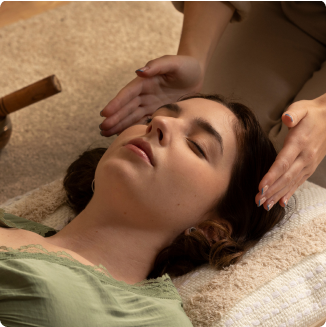Blog
Resources

Decoding Depression: Unveiling Neurotransmitters, Ketamine, and TMS Therapy
“You don't know why you're exhausted? You're fighting a war inside your head every single day. If that's not exhausting, I don't what is.” -Unknown
Introduction:
Neurochemical Roots of Depression:

Let’s get to it! You know, not everyone dealing with depression is going through it because of external stuff. Some folks have clinical depression, where it's more about a chemical imbalance than outside forces messing things up. So, all the non-medical methods might not cut it for them, you know? It's like a different ball game.
The people dealing with clinical depression often have this enzyme called monoamine oxidase A (MAO-A) that breaks down important neurotransmitters? Well, it messes with their serotonin, dopamine, and norepinephrine levels, making them super low. There was this study in 2013 at Stanford where they used optogenetic mouse models (yeah, those exist) to show that when they altered the dopamine-releasing neurons in the midbrain, it caused depression-like behaviors due to chronic stress. Basically, it's adding more evidence to the connection between low dopamine and depression in people. Crazy, right?
Fighting the Imbalance:

Well, the new buzz it turns out, ketamine, the FDA-approved anesthetic that messes with the glutamate NMDA receptor, can actually combat depression within hours. Crazy, right? It's like a rapid response compared to the usual antidepressants. While it seems like a game-changer, but the catch is that it there’s still studies running to figure out if this treatment has long-term effectiveness. So, for now, it's kind of seen as a quick fix rather than a long-term solution for folks with major depressive disorder who aren't getting results from the usual antidepressants.

Now, for those who've tried everything under the sun and still aren't catching a break with traditional or newer methods, there's this game-changer called Transcranial Magnetic Stimulation (TMS) Therapy. It's like the superhero of treatments, especially for those who've become resistant to other methods or are just looking for a solid, long-term solution.
And get this, there's actual evidence! TMS therapy has been shown to help a percentage of patients hit full remission from depression. It's not just me saying this - studies back it up. So, while ketamine might be the quick fix, TMS is like the marathon runner, providing a real shot at a long-lasting solution for those who've been through the ringer with depression treatments.

Let’s Wrap this up!
So, in the grand puzzle of depression, it's clear that not everyone battling this mental health challenge is on the same playing field. Clinical depression, with its roots in a chemical imbalance rather than external factors, demands a different approach. But as we navigate this maze of mental health, it's crucial to acknowledge that the quick fixes might not be the answer for everyone like it is for some. Ketamine's rapid response is intriguing, but ongoing studies will unveil its long-term effectiveness. TMS Therapy, the superhero in this narrative, offering a beacon of hope for those resilient souls, presents a marathon solution for those in pursuit of lasting relief. But the journey is ongoing and every breakthrough, from neurotransmitters to innovative therapies, brings us closer to a comprehensive understanding and effective treatment for this complex adversary.
Our clinic offers TMS Therapy if your short term fixes aren't cutting it for you. With our caring and knowledgeable staff, we can get you where you need to be mentally! Let's start tackling this puzzle together, call or text us today. We are here for YOU!
Blog
Resources

Decoding Depression: Unveiling Neurotransmitters, Ketamine, and TMS Therapy
“You don't know why you're exhausted? You're fighting a war inside your head every single day. If that's not exhausting, I don't what is.” -Unknown
Introduction:
Neurochemical Roots of Depression:

Let’s get to it! You know, not everyone dealing with depression is going through it because of external stuff. Some folks have clinical depression, where it's more about a chemical imbalance than outside forces messing things up. So, all the non-medical methods might not cut it for them, you know? It's like a different ball game.
The people dealing with clinical depression often have this enzyme called monoamine oxidase A (MAO-A) that breaks down important neurotransmitters? Well, it messes with their serotonin, dopamine, and norepinephrine levels, making them super low. There was this study in 2013 at Stanford where they used optogenetic mouse models (yeah, those exist) to show that when they altered the dopamine-releasing neurons in the midbrain, it caused depression-like behaviors due to chronic stress. Basically, it's adding more evidence to the connection between low dopamine and depression in people. Crazy, right?
Fighting the Imbalance:

Well, the new buzz it turns out, ketamine, the FDA-approved anesthetic that messes with the glutamate NMDA receptor, can actually combat depression within hours. Crazy, right? It's like a rapid response compared to the usual antidepressants. While it seems like a game-changer, but the catch is that it there’s still studies running to figure out if this treatment has long-term effectiveness. So, for now, it's kind of seen as a quick fix rather than a long-term solution for folks with major depressive disorder who aren't getting results from the usual antidepressants.

Now, for those who've tried everything under the sun and still aren't catching a break with traditional or newer methods, there's this game-changer called Transcranial Magnetic Stimulation (TMS) Therapy. It's like the superhero of treatments, especially for those who've become resistant to other methods or are just looking for a solid, long-term solution.
And get this, there's actual evidence! TMS therapy has been shown to help a percentage of patients hit full remission from depression. It's not just me saying this - studies back it up. So, while ketamine might be the quick fix, TMS is like the marathon runner, providing a real shot at a long-lasting solution for those who've been through the ringer with depression treatments.

Let’s Wrap this up!
So, in the grand puzzle of depression, it's clear that not everyone battling this mental health challenge is on the same playing field. Clinical depression, with its roots in a chemical imbalance rather than external factors, demands a different approach. But as we navigate this maze of mental health, it's crucial to acknowledge that the quick fixes might not be the answer for everyone like it is for some. Ketamine's rapid response is intriguing, but ongoing studies will unveil its long-term effectiveness. TMS Therapy, the superhero in this narrative, offering a beacon of hope for those resilient souls, presents a marathon solution for those in pursuit of lasting relief. But the journey is ongoing and every breakthrough, from neurotransmitters to innovative therapies, brings us closer to a comprehensive understanding and effective treatment for this complex adversary.
Our clinic offers TMS Therapy if your short term fixes aren't cutting it for you. With our caring and knowledgeable staff, we can get you where you need to be mentally! Let's start tackling this puzzle together, call or text us today. We are here for YOU!
What Patients Say

"Absolutely best Doctor that I have ever had. Very knowledgeable, innovative, and most importantly, very caring and concerned for his patients best interest!! He actually listens and doesn’t attempt to use a one size fits all attitude. Definitely an out of the box thinker. So very sincerely grateful for him. ❤️ A life saver on a multitude of levels!! Thank you Doc!"

Sharon B.
Saratoga Springs

"I highly recommend Dr. Manuel Astruc for his exceptional work in providing Transcranial Magnetic Stimulation (TMS) treatments. I have been a patient of
Dr. Astruc for almost a year, receiving TMS treatments, and have experienced significant improvements in my mental health and overall well-being."

Chelsea F.
Saratoga Springs
FAQ
What is TMS?
TMS (Transcranial Magnetic Stimulation) therapy is a non-invasive and FDA-approved treatment for various mental health conditions, including depression, anxiety, and obsessive-compulsive disorder (OCD). This therapy uses magnetic fields to stimulate nerve cells in the brain, which can alleviate symptoms and improve overall well-being.
What is EEG?
EEG stands for Electroencephalogram. It's a test that measures electrical activity in the brain through small electrodes placed on the scalp, often used to diagnose neurological disorders or study brain function. It is used to identify the location, severity, and frequency of dysregulation in the brain. It can be very valuable when used along side TMS, and as a Quantitative EEG. This is when a normative database is used to compare the patient's brain activity to healthy brains at the same age.

How does TMS work?
TMS therapy works by using magnetic fields to stimulate specific areas of the brain that are associated with mood regulation and emotional processing. During a TMS session, a magnetic coil is placed against the scalp, and a rapidly changing magnetic field is generated, which induces an electrical current in the brain. This current can activate nerve cells that may not be functioning correctly, leading to improvements in symptoms related to depression, anxiety, and other mental health conditions. The exact mechanism by which TMS therapy produces its beneficial effects is still being studied, but it is believed to involve changes in neural plasticity and the release of neurotransmitters in the brain.
Is TMS for me?
Whether TMS therapy is right for you depends on various factors, including your specific symptoms, medical history, and treatment goals. TMS therapy has been shown to be effective for many individuals with depression, anxiety, and other mental health conditions, particularly those who have not responded well to traditional treatments such as medications or psychotherapy. However, it is important to consult with a healthcare professional to determine whether TMS therapy is a suitable option for you. A consultation with a TMS specialist can help you learn more about the treatment, its potential benefits, and whether it may be a good fit for your individual needs.
What does TMS feel like?
During a TMS (Transcranial Magnetic Stimulation) therapy session, you may feel a tapping or clicking sensation on your scalp where the magnetic coil is placed. This tapping sensation is typically painless and generally well-tolerated by most individuals. Some people also report feeling a mild headache or scalp discomfort during or after the treatment, but these side effects are usually temporary and go away shortly after the session is completed.
It's important to note that everyone's experience with TMS therapy is different, and some people may not experience any discomfort at all. If you have concerns about potential side effects or discomfort during TMS therapy, it's best to speak with a TMS specialist who can provide more detailed information and address any questions you may have.
Are there any side effects?
TMS (Transcranial Magnetic Stimulation) therapy is generally considered to be a safe and well-tolerated treatment for mental health conditions such as depression, anxiety, and obsessive-compulsive disorder. However, like any medical procedure, TMS therapy may be associated with some potential side effects.
Common side effects of TMS therapy include mild headache, scalp discomfort, and muscle twitching or spasms in the face or jaw during the session. These side effects are typically mild and short-lived, and can be managed with over-the-counter pain medication if needed.
Rarely, more serious side effects such as seizures or mania may occur, but these are extremely rare and typically only occur in individuals with certain pre-existing medical conditions. It's important to discuss any potential risks or concerns with a healthcare professional before starting TMS therapy.
Overall, TMS therapy is a safe and well-tolerated treatment option for many people with mental health conditions, and the benefits of the treatment generally outweigh the potential risks or side effects.
Is TMS covered by insurance?
Many insurance plans do cover TMS (Transcranial Magnetic Stimulation) therapy, but coverage varies depending on the specific plan and insurance provider. Some insurance plans may cover the full cost of TMS therapy, while others may cover only a portion of the cost or require a copayment or deductible.
It's always a good idea to check with your insurance provider to see if TMS therapy is covered under your plan and what your out-of-pocket costs may be. Some TMS clinics also offer assistance with insurance coverage and can help you navigate the insurance process.
What Patients Say
"Absolutely best Doctor that I have ever had. Very knowledgeable, innovative, and most importantly, very caring and concerned for his patients best interest!! He actually listens and doesn’t attempt to use a one size fits all attitude. Definitely an out of the box thinker. So very sincerely grateful for him. ❤️ A life saver on a multitude of levels!! Thank you Doc!"

Sharon B.
Saratoga Springs
"I highly recommend Dr. Manuel Astruc for his exceptional work in providing Transcranial Magnetic Stimulation (TMS) treatments. I have been a patient of
Dr. Astruc for almost a year, receiving TMS treatments, and have experienced significant improvements in my mental health and overall well-being."

Chelsea F.
Saratoga Springs
We Accept Insurance

We are not in network with Fidelis, Medicare, or Humana at this time.
Contact your insurance provider to find how TMS is covered for you, as well as what fees you might be responsible for.

Come Join Us And Take Care Of Your Mental Health
Join us now and begin the positive change you deserve.
Our Services
Explore and book live and on-demand Yoga, Meditation and Art Therapy classes across the globe

Therapy

(234)

Yoga

(234)

Meditation

(234)
Success Stories
Discover the experiences of our patients who have undergone TMS therapy.

Sabrina
"I not only feel much better, I was able to get to know the amazing staff at the office! I feel alive again. I am so glad I decided to give it a try. I am so glad finished all the sessions. It works!"

Brycen
Your Paragraph text goes Lorem ipsum dolor sit amet, consectetur adipisicing elit. Autem dolore, alias, numquam enim ab voluptate id quam harum ducimus cupiditate similique quisquam et deserunt, recusandae. here

Meditation
Your Paragraph text goes Lorem ipsum dolor sit amet, consectetur adipisicing elit. Autem dolore, alias, numquam enim ab voluptate id quam harum ducimus cupiditate similique quisquam et deserunt, recusandae. here
Feel the relaxing Sensation

Private group
Join us as a member of a private group that will practice every
week and feel the benefits.

Pleasant situation
A pleasant atmosphere makes you enjoy doing yoga and focus on doing it.

Adequate tools
A pleasant atmosphere makes you enjoy doing yoga and focus on doing it.


Come Join Us And Take Care Of Your
Mental Health
Ready to take charge of your mental health journey?
Join us now and begin the positive change you deserve.


